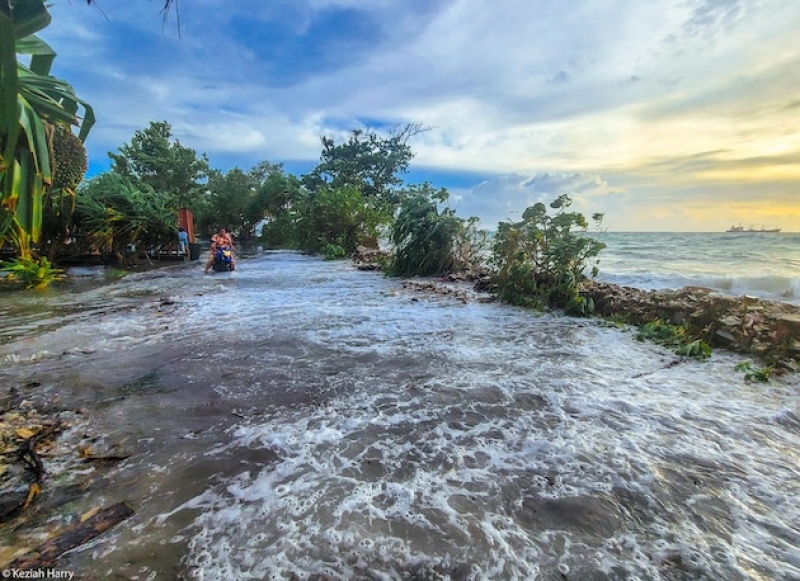- Israel Strikes Tehran with US Support Amid Nuclear Tensions |
- India Sees 9% Drop in Foreign Tourists as Bangladesh Visits Plunge |
- Dhaka Urges Restraint in Pakistan-Afghan War |
- Guterres Urges Action on Safe Migration Pact |
- OpenAI Raises $110B in Amazon-Led Funding |
Tuvalu Faces Climate Crisis, Frustrated by Slow Funding

Prime Minister of Tuvalu, Feleti Teo, describes himself as an optimist—despite the existential crisis his atoll nation faces due to climate change-induced sea level rise and growing frustration with the slow pace of international funding for adaptation and mitigation.
Speaking at a press conference on June 12 during the 3rd UN Ocean Conference, Teo called the event a success. Earlier in the week, Tuvalu ratified two key agreements: the UN Convention on the Law of the Sea on the Conservation and Sustainable Use of Marine Biological Diversity in Areas Beyond National Jurisdiction (BBNJ), and the FAO’s Agreement on Port State Measures (PSMA), aimed at tackling illegal, unreported, and unregulated (IUU) fishing.
“These agreements are crucial,” Teo said. “The ocean is everything to us—a source of protein, income, and fisheries. It represents 40 percent of our domestic budget.” But the ocean is also Tuvalu’s greatest threat. With sea levels rising, more than 50 percent of the country is projected to be regularly flooded by tidal surges by 2050.
“There is no higher ground to retreat to—Tuvalu is totally flat,” he added.
Teo highlighted that $40 million has already been spent on Tuvalu’s flagship Coastal Adaptation Project, with phase one completed. But behind this milestone lies frustration.
“Coastal adaptation projects will continue,” he said. “But it’s a very expensive exercise.”
He called on development partners and global climate finance mechanisms to act with urgency.
“I’ve always urged our partners and financial institutions to be more responsive in providing the necessary climate finance so that we can adapt and continue living on the land we believe God has given us,” Teo said.
Yet, he acknowledged the inefficiencies: applications to the Loss and Damage Fund and other mechanisms can take up to eight years. In response, Pacific nations created the Pacific Resilience Facility to support small, grant-based, high-impact projects aimed at disaster preparedness.
Teo said the UNOC3 gave Tuvalu and other small island nations a platform to voice their concerns.
“We don’t have global influence—except to continue telling our story,” he said.
He also praised the Pacific French Summit, noting that French President Emmanuel Macron showed genuine concern for the region.

